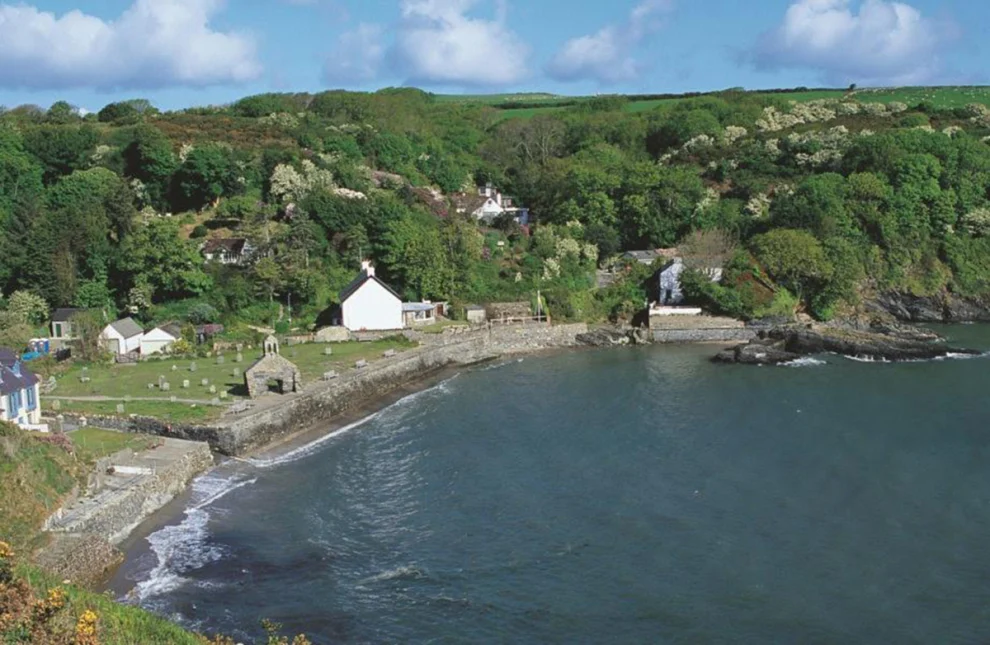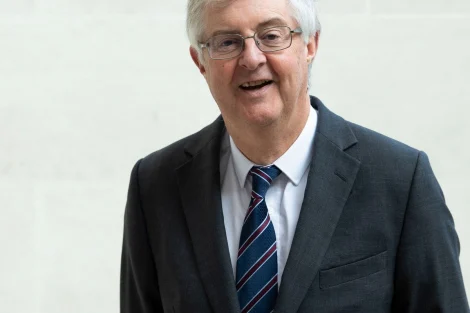MARK DRAKEFORD says his government will soon advance practical proposals to address Wales’s second homes crisis.
Interviewed by Cemlyn Davies on BBC Radio Wales’ Sunday Supplement on June 6, the First Minister said that he expected a paper to be presented to the Welsh Government’s Cabinet by the end of this month.
He added that the Cabinet paper would draw together a range of material and set out options for tackling the shortage of homes caused by incoming purchasers inflating property prices in rural and coastal Wales.
Over the last twelve months, Welsh property prices rose by an average of 11%. However, the rate of property price increases is far higher in rural Wales, mainly in Wales’s west coast counties, including Pembrokeshire, Ceredigion, Carmarthenshire, and Gwynedd.
Last week, it emerged that Cwm-yr-Eglwys had only two permanently occupied properties out of fifty in the small North Pembrokeshire village. In addition, another occupied property in the village is on the market for £1.3m.
Cemlyn Davies spoke to Keith Battrick, a Dinas Cross Community Councillor.
Cllr Battrick said: “There is no one here during the winter.
“Local people can’t afford to live here. People from this area who’ve moved away can’t come back to live here because the house prices are so high.
“Within 10 years there probably won’t be anyone local living here. I’m concerned about the same thing in other villages. You can already see it happening.”
Mark Drakeford told Cemlyn Davies that he wanted to work across party boundaries to discuss proposals to stem the scourge of second homes driving local people out of their communities and pricing them out of the areas in which they want to live and work.
However, the First Minister acknowledged that there were vacant properties in parts of Wales where incomers did not want to live; for example, in the Valleys of South-East Wales. Bringing those vacant properties back into use to tackle the housing shortage in those areas will be a different challenge for the Welsh Government.
Mr Drakeford acknowledged that point, adding that there cannot be a one-size-fits-all approach for the whole of Wales. A national issue, he said, boiled down to a series of local and regional problems.
He continued: “Progress is definitely being made inside the Welsh Government to come forward with a package of proposals.
“I expect the Cabinet to have a paper before the end of this month drawing together all those ideas and giving us some practical proposals to consider.
“[A]n important report on this whole issue was published in March by Dr Simon Brooks in Swansea University.
“We hope to respond to that report this month as well. It made a series of recommendations aimed at not just the Welsh Government but also local authorities.
“Nobody has a monopoly of ideas or wisdom on this topic, and when we come forward with our proposals, we’ll want to discuss them with others.
“And see if there are any other ideas that we could add to that repertoire, to strengthen the protections that are available in those local communities where, if we’re not careful, people who were born, brought up, and want to make their futures in those parts of Wales, simply find that that’s not possible for them.”
The Conservative Shadow Minister for Rural Affairs and the Welsh Language, Sam Kurtz, was also interviewed by Cemlyn Davies and invited to respond to the First Minister’s words.
He said: “It definitely is a political problem, but it’s not a party political one.
“There is definitely a shortage of properties for First Time Buyers in rural areas and in those where house prices are going up steeply. However, as well as making properties available for First Time Buyers, we must build them in the right areas. That means boosting the economy to allow young people to find work in their communities.”
Mr Kurtz continued: “I’m encouraged by the First Minister’s words and look forward to working collaboratively to find solutions. However, the discussions must be meaningful and not be just an empty gesture towards collaborative working.
“One size does not fit all. Every community is different. Building more houses is part of the solution but not the only one. National Park authorities stop farmers from converting outbuildings into permanent residences for their children and wonder why young people leave.
“There needs to be a common-sense approach to the way National Parks go about planning decisions.
“It’s time for an end to nimbyism. If you’re looking at redeveloping buildings for families to occupy, the rules must be relaxed.”
Although Sam Kurtz struck a non-partisan note, he added: “In the past, the Welsh Government decanted problems with housing, second homes, and empty properties down to local government. During the pandemic, the Welsh Government worked well with local government. I’d want that collaborative approach to continue, rather than leave everything up to local authorities to fix.”




















Add Comment